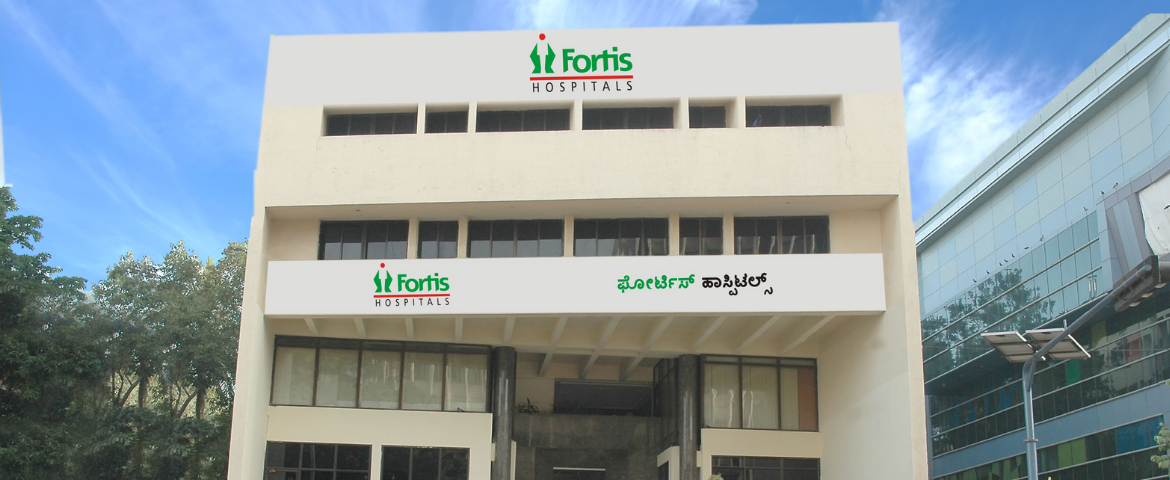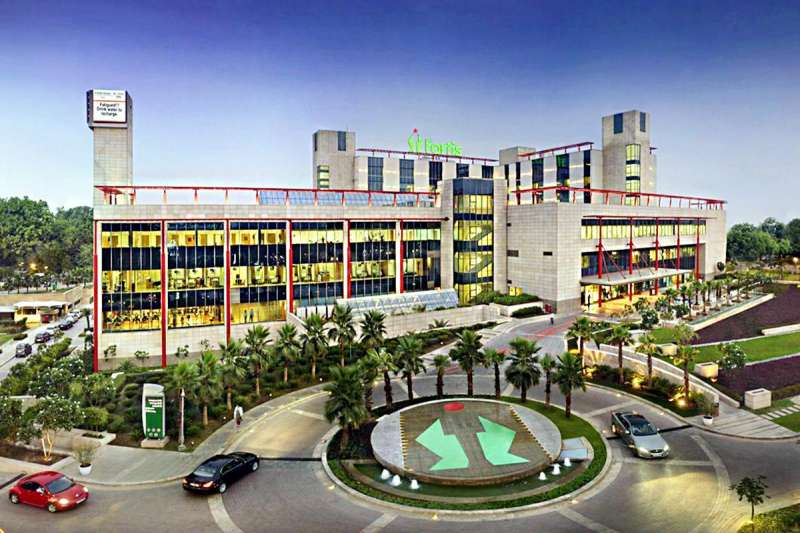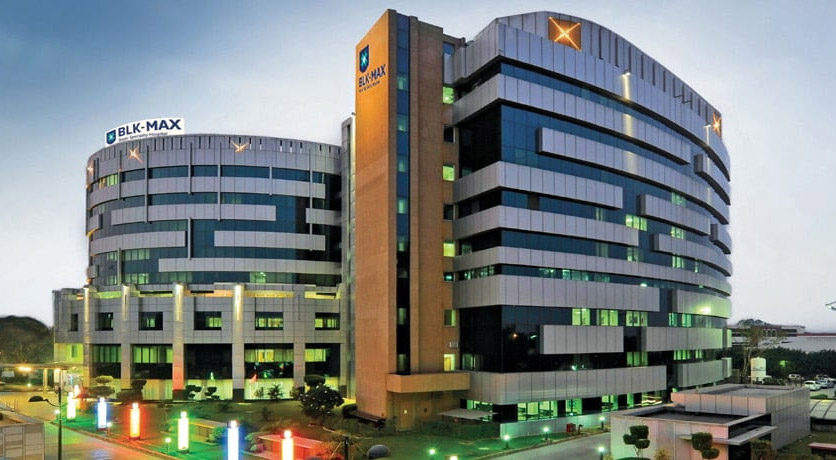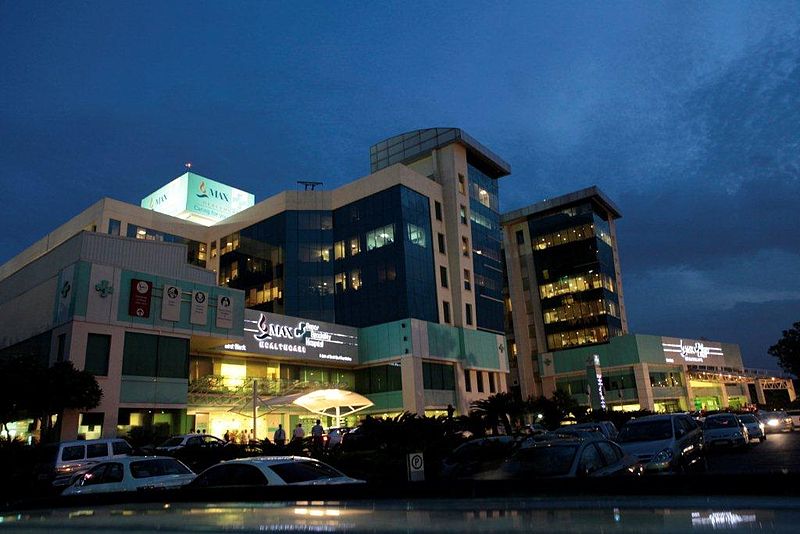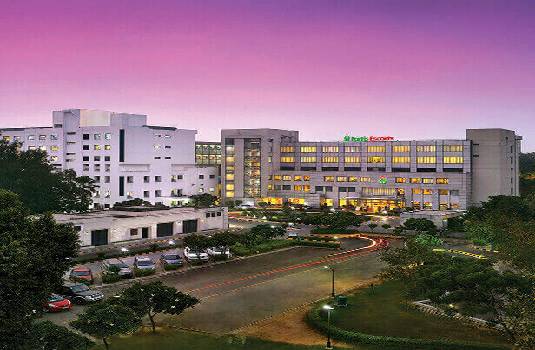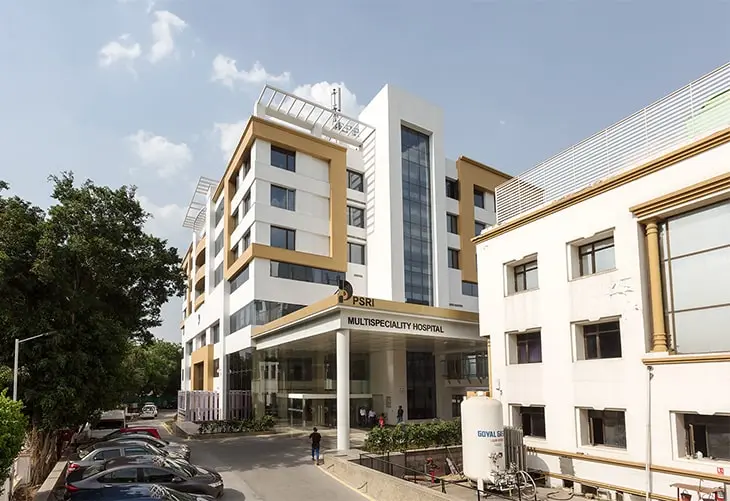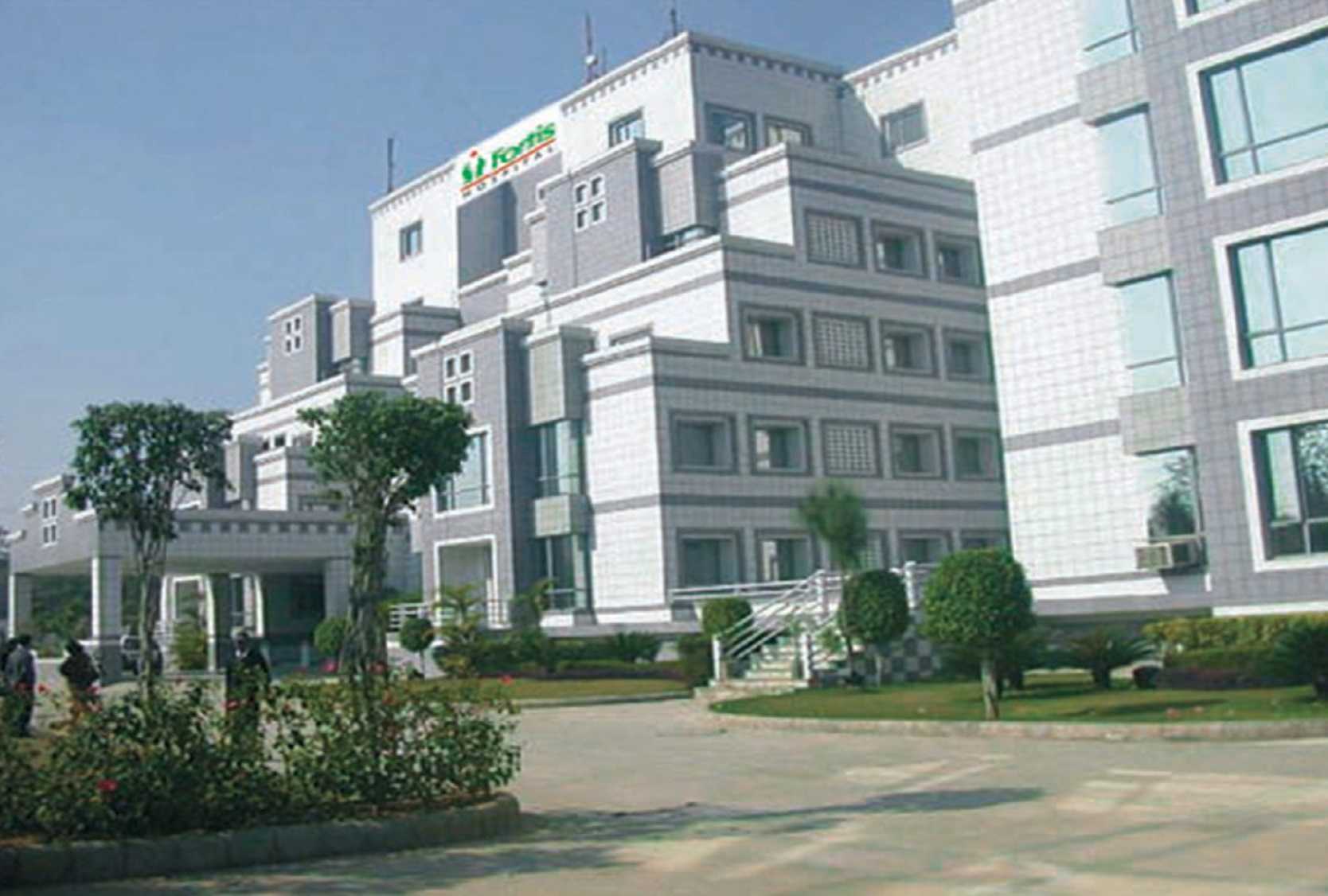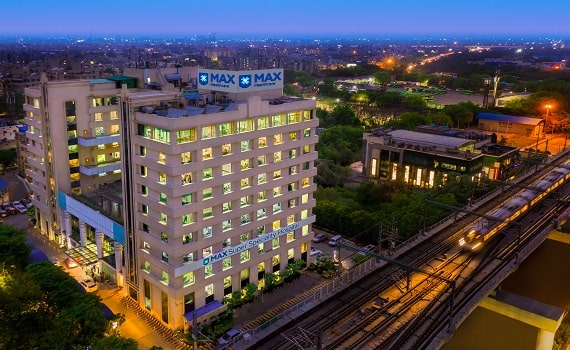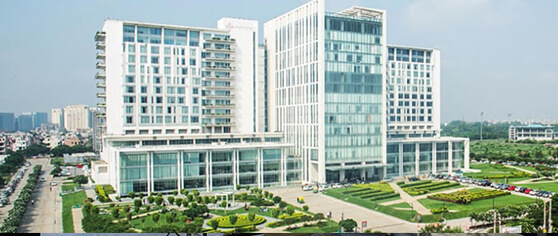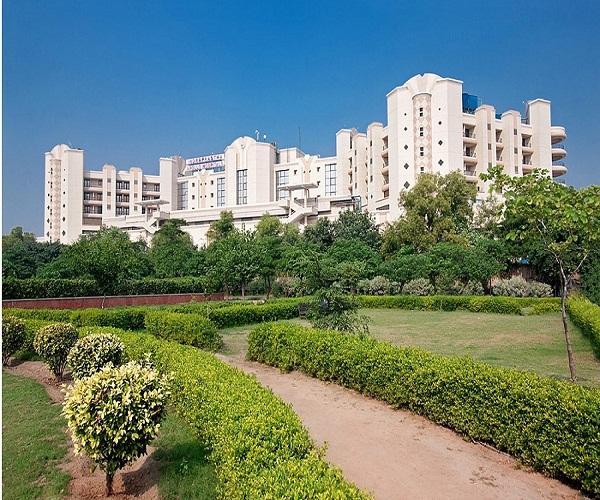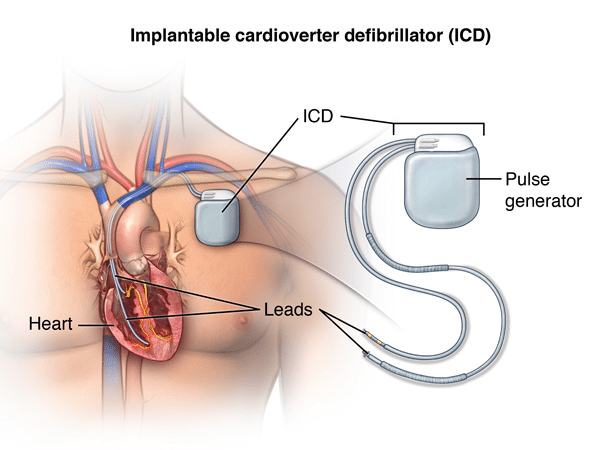AICD cost in India
The cost of AICD Implantation in India ranges
from USD 14000 to USD 23000
AICD Implantation:
A tiny electronic device called an Automatic Implantable Cardioverter Defibrillator (AICD) is placed into your chest to monitor and treat an irregular cardiac rhythm, or arrhythmia. These devices are the most effective treatment option for significant and life-threatening arrhythmias.
Defibrillators work in two ways to treat arrhythmias: first, they try to interrupt the aberrant rhythm with a burst of high-speed pacing (cardioversion). If that fails, the gadget will shock the heart with an electrical jolt to restore its rhythm (defibrillation). Cardioversion is frequently not known to patients, although defibrillation is almost always known. It can also gather and store data about your heart's electrical activity, which your cardiologist can examine.
AICD Implantation:
A tiny electronic device called an Automatic Implantable Cardioverter Defibrillator (AICD) is placed into your chest to monitor and treat an irregular cardiac rhythm, or arrhythmia. These devices are the most effective treatment option for significant and life-threatening arrhythmias.
Defibrillators work in two ways to treat arrhythmias: first, they try to interrupt the aberrant rhythm with a burst of high-speed pacing (cardioversion). If that fails, the gadget will shock the heart with an electrical jolt to restore its rhythm (defibrillation). Cardioversion is frequently not known to patients, although defibrillation is almost always known. It can also gather and store data about your heart's electrical activity, which your cardiologist can examine.
The defibrillator will be programmed by your cardiologist to offer the optimal therapy for you.
Disease Overview:
life-threatening arrhythmia
Ventricular fibrillation, which is an unpredictable, unorganized firing of impulses from the ventricles (the heart's bottom chambers), is the most frequent life-threatening arrhythmia. If left untreated, the heart becomes unable to pump blood, and death happens within minutes.
Disease Signs and Symptoms
A person may not detect any signs of arrhythmia, according to the National Heart, Lung, and Blood Institute (NHLBI)Trusted Source. People may also experience symptoms on a regular basis, which may grow more common with time.
An irregular heartbeat is something that can be felt. Their heart may feel as if it has missed a beat, or as if it is sluggish or racing.
Arrhythmia can cause a variety of significant symptoms, including:
- Palpitations, which may feel like a fluttering or hammering in the chest, strong palpitations, which can feel like a fluttering or pounding in the chest weariness
- anxiety
- Fog in the head
- sweating \sweakness
- vision clouded due to dizziness
Disease Causes:
Changes in cardiac tissue or the electrical impulses that govern the heartbeat can cause arrhythmias. These alterations can be caused by a variety of circumstances, including disease, toxins, stress, injury, or a person's heredity.
Disease Diagnosis
A physical exam and inquiries about your medical history and symptoms are commonly used to identify a cardiac arrhythmia. Tests may be performed to confirm an irregular heartbeat and to check for causes of arrhythmias, such as heart disease or thyroid illness.
The following tests may be used to identify cardiac arrhythmias:
An EKG is a type of electrocardiogram (ECG or EKG). Sensors (electrodes) that can detect the electrical activity of the heart are connected to the chest, as well as the arms and legs, during an ECG. The time and length of each electrical phase of the heartbeat are measured by an ECG.
Holter monitor is a device that records heartbeats. This portable ECG gadget may be worn for a day or longer to record the activity of your heart while you go about your daily activities.
Recorder of events. This ECG gadget is worn on the body to identify occasional arrhythmias. When symptoms appear, you push a button. Wearing an event recorder for a longer amount of time is possible (up to 30 days or until you have an arrhythmia or typical symptoms).
Echocardiogram. A hand-held device (transducer) placed on the chest produces pictures of the heart's size, structure, and motion in this noninvasive examination.
Holter monitor is a device that records heartbeats. This portable ECG gadget may be worn for a day or longer to record the activity of your heart while you go about your daily activities.
Recorder of events. This ECG gadget is worn on the body to identify occasional arrhythmias. When symptoms appear, you push a button. Wearing an event recorder for a longer amount of time is possible (up to 30 days or until you have an arrhythmia or typical symptoms).
Echocardiogram. A hand-held device (transducer) placed on the chest produces pictures of the heart's size, structure, and motion in this noninvasive examination.
Loop recorder that can be implanted. If symptoms are rare, an event recorder may be placed beneath the skin in the chest region to continuously record the electrical activity of the heart and detect abnormal cardiac beats.
If your doctor doesn't identify an arrhythmia during those tests, he or she may use other tests to try to provoke it, such as:
Stress test: Exercising can cause or aggravate certain arrhythmias. The activity of your heart is monitored as you ride a stationary bicycle or walk on a treadmill during a stress test. If you have trouble exercising, a medicine that stimulates the heart in a similar way as exercise may be prescribed.
Test using a tilted table. If you've experienced fainting spells, your doctor may prescribe this test. As you lie flat on a table, your heart rate and blood pressure are measured. The table is then slanted so that you may stand up at it. The doctor will pay attention to how your heart and the neurological system that regulates it react to the change in angle.
Testing and mapping of the electrophysiological system. A doctor inserts small, flexible tubes (catheters) tipped with electrodes through the blood arteries to different regions within the heart in this test, also known as an EP study. The electrodes can track the propagation of electrical impulses across the heart once they're in place.
The electrodes are sometimes used by a heart specialist (cardiologist) to stimulate the heart to beat at rates that may provoke — or halt — an arrhythmia. This allows the clinician to pinpoint the exact site of the arrhythmia, as well as its probable causes and treatment alternatives. This test can also be used to see if a person has a high risk of having cardiac arrhythmias due to a medical condition.
Disease Treatment:
Treatment for cardiac arrhythmias is determined by whether you have a rapid (tachycardia) or slow (bradycardia) heartbeat (bradycardia). Some cardiac arrhythmias might not necessitate medical intervention. Regular checks with your doctor may be recommended to keep an eye on your health.
Treatment for cardiac arrhythmia is typically only required if the irregular heartbeat is producing substantial symptoms or putting you at risk for more serious heart issues. Medication, treatments such as vagal manoeuvres, cardioversion, catheter procedures, or cardiac surgery may be used to treat heart arrhythmias.
Therapies
Vagal manoeuvres and cardioversion are two treatments for cardiac arrhythmias that halt the erratic beating.
Vagal moves are a type of manoeuvre. Your doctor may offer this therapy if you have an extremely rapid heartbeat owing to supraventricular tachycardia. Vagal movements cause your heart rate to slow by affecting the neurological system that governs your heartbeat (vagus nerves). You might be able to halt an arrhythmia by holding your breath and straining, or by dipping your face in ice water or coughing. Vagal movements aren't effective for all arrhythmias.
Cardioversion. This approach of resetting the cardiac rhythm can be accomplished by medication or surgery. If you have a specific form of arrhythmia, such as atrial fibrillation, your doctor may offer this therapy.
A shock is administered to your heart using paddles or patches on your chest during the cardioversion operation. The current alters your heart's electrical impulses and can help you get back into a regular rhythm.
Surgical or non-surgical techniques
Catheter treatments or surgery to implant a heart (cardiac) device may be used to treat heart arrhythmias. Depending on the kind of arrhythmia, open-heart surgery may be required.
The following are some of the techniques and operations used to treat cardiac arrhythmias:
Ablation with a catheter. The doctor inserts one or more catheters into the blood arteries to the heart during this surgery. Electrodes at the catheter tips produce microscopic scars in your heart with heat or cold energy to block aberrant electrical signals and restore a regular heartbeat.
Pacemaker. Because there are no drugs that can consistently speed up the heart, doctors generally treat sluggish heartbeats (bradycardias) with a pacemaker if they don't have a reason that can be rectified.
A pacemaker is a tiny implanted device that is often placed at the collarbone. One or more electrode-tipped cables extend from the pacemaker to the inner heart through the blood arteries. The pacemaker gives out electrical impulses to stimulate the heart to beat at a regular rhythm if it is too sluggish or stops.
Cardioverter-defibrillator (ICD) implantable (ICD). If you have a high chance of having a dangerously rapid or irregular heartbeat in the lower heart chambers, your doctor may suggest this device (ventricular tachycardia or ventricular fibrillation). Your doctor may also prescribe an ICD if you have experienced a sudden cardiac arrest or if you have certain heart diseases that enhance your risk of sudden cardiac arrest.
Procedure for the maze. A surgeon creates a pattern (or labyrinth) of scar tissue by making a series of incisions in the heart tissue in the upper half of your heart (atria). Scar tissue doesn't conduct electricity, therefore it gets in the way of stray electrical impulses that produce arrhythmia.
The maze operation is often reserved for patients who have failed to improve with prior therapies or who are undergoing open-heart surgery for another reason.
Coronary bypass surgery is a procedure that involves bypassing the coronary arteries Your doctor may recommend coronary bypass surgery if you have significant coronary artery disease and a cardiac arrhythmia. The blood flow to your heart may be improved as a result of this surgery.
Country wise cost comparison for AICD:
| Country | Cost |
|---|---|
| India | $14040 |
| Iran | $4203 |
Treatment and Cost
15
Total Days
In Country
- 3 Day in Hospital
- 2 No. Travelers
- 12 Days Outside Hospital
Treatment cost starts from
$15600
Popular Hospital & Clinic
Featured Hospital
9 Hospitals
Types of AICD in Fortis Memorial Research Institute and its associated cost
| Treatment Option | Approximate Cost Range (USD) |
|---|---|
| No Treatment option added | |
- Address: Sector - 44, Opp. HUDA City Center,Gurgaon, Haryana - 122002, India
- Facilities related to Fortis Memorial Research Institute: Private Rooms, Translator, Nursery / Nanny Services, Airport Pick up, Personal Assistance / Concierge, Free Wifi, Local Tourism Options, International Cuisine, Phone in Room, Private Driver / Limousine Services, Post operative followup, Mobility Accessible Rooms, Online Doctor Consultation, Air Ambulance, Religious Facilities, Rehabilitation, Cafe, TV in room, Car Hire, Health Insurance Coordination,
50
DOCTORS IN 35 SPECIALITIES
20+
FACILITIES & AMENITIES
Types of AICD in BLK-Max Super Speciality Hospital and its associated cost
| Treatment Option | Approximate Cost Range (USD) |
|---|---|
| No Treatment option added | |
- Address: Pusa Road, New Delhi-110005
- Facilities related to BLK-Max Super Speciality Hospital: Private Rooms, Translator, Nursery / Nanny Services, Personal Assistance / Concierge, Free Wifi, International Cuisine, Phone in Room, Private Driver / Limousine Services, Post operative follow-up, Mobility Accessible Rooms, Rehabilitation, Cafe, TV in room, Car Hire, Health Insurance Coordination
17
DOCTORS IN 33 SPECIALITIES
20+
FACILITIES & AMENITIES
Types of AICD in Max Super Speciality Hospital and its associated cost
| Treatment Option | Approximate Cost Range (USD) |
|---|---|
| No Treatment option added | |
- Address: Max Super Speciality Hospital No. 1, 2, Press Enclave Road, Mandir Marg, Saket Institutional Area, Saket, New Delhi, Delhi, 110017, India
- Facilities related to Max Super Speciality Hospital:
53
DOCTORS IN 34 SPECIALITIES
20+
FACILITIES & AMENITIES
Types of AICD in Fortis Escorts Heart Institute and its associated cost
| Treatment Option | Approximate Cost Range (USD) |
|---|---|
| No Treatment option added | |
- Address: Okhla Road,New Delhi - 110 025 (INDIA)
- Facilities related to Fortis Escorts Heart Institute: Private Rooms, Translator, Nursery / Nanny Services, Personal Assistance / Concierge, Free Wifi, International Cuisine, Phone in Room, Private Driver / Limousine Services, Post operative follow-up, Mobility Accessible Rooms, Rehabilitation, Cafe, TV in room, Car Hire, Health Insurance Coordination
19
DOCTORS IN 33 SPECIALITIES
20+
FACILITIES & AMENITIES
Types of AICD in PSRI Hospital and its associated cost
| Treatment Option | Approximate Cost Range (USD) |
|---|---|
| No Treatment option added | |
- Address: Press Enclave Marg, J Pocket, Phase II, Sheikh Sarai, New Delhi, Delhi 110017
- Facilities related to PSRI Hospital: Private Rooms, Translator, Nursery / Nanny Services, Personal Assistance / Concierge, Free Wifi, International Cuisine, Phone in Room, Private Driver / Limousine Services, Post operative follow-up, Mobility Accessible Rooms, Rehabilitation, Cafe, TV in room, Car Hire, Health Insurance Coordination
8
DOCTORS IN 33 SPECIALITIES
20+
FACILITIES & AMENITIES
Types of AICD in Fortis Flt. Lt. Rajan Dhall Hospital, Vasant Kunj, Delhi and its associated cost
| Treatment Option | Approximate Cost Range (USD) |
|---|---|
| No Treatment option added | |
- Address: Fortis Flt. Lt. Rajan Dhall Hospital, Aruna Asaf Ali Marg, Pocket 1, Sector B, Vasant Kunj, New Delhi, Delhi 110070
- Facilities related to Fortis Flt. Lt. Rajan Dhall Hospital, Vasant Kunj, Delhi: Private Rooms, Translator, Nursery / Nanny Services, Personal Assistance / Concierge, Free Wifi, International Cuisine, Phone in Room, Private Driver / Limousine Services, Post operative follow-up, Mobility Accessible Rooms, Rehabilitation, Cafe, TV in room, Car Hire, Health Insurance Coordination
46
DOCTORS IN 34 SPECIALITIES
20+
FACILITIES & AMENITIES
Types of AICD in MAX Super Speciality hospital, Patpadganj Delhi and its associated cost
| Treatment Option | Approximate Cost Range (USD) |
|---|---|
| No Treatment option added | |
- Address: 108A, Indraprasth Extension, Patpadganj, New Delhi- 110092, India
- Facilities related to MAX Super Speciality hospital, Patpadganj Delhi: Private Rooms, Translator, Nursery / Nanny Services, Personal Assistance / Concierge, Free Wifi, International Cuisine, Phone in Room, Private Driver / Limousine Services, Post operative follow-up, Mobility Accessible Rooms, Rehabilitation, Cafe, TV in room, Car Hire, Health Insurance Coordination
52
DOCTORS IN 33 SPECIALITIES
20+
FACILITIES & AMENITIES
Types of AICD in Medanta-The Medicity, Gurgaon and its associated cost
| Treatment Option | Approximate Cost Range (USD) |
|---|---|
| No Treatment option added | |
- Address: CH Baktawar Singh Road, Sector 38, Gurugram, Haryana 122001
- Facilities related to Medanta-The Medicity, Gurgaon: TV in room Private rooms, Free Wifi, Phone in Room, Mobility accessible rooms, Family accommodation, Laundry, Welcome Safe in the room, Nursery / Nanny services. Dry cleaning, Personal assistance / Concierge Religious facilities, Fitness Spa and wellness Café, Business Centre, Shop, Dedicated smoking areas, Beauty Salon, Special offer for group stays, Parking available, Health insurance coordination, Medical travel insurance, Foreign currency exchange, ATM, Credit Card, Debit Card, Net banking, Diet on Request, Restaurant, International Cuisine, Treatment Related Medical records transfer, Online doctor consultation, Rehabilitation, Pharmacy, Document legalization, Post operative follow-up, Language Interpreter, Translation services, Transportation, Airport pickup, Local tourism options, Local transportation booking, Visa / Travel office, Car Hire, Private driver / Limousine services, Air ambulance
52
DOCTORS IN 33 SPECIALITIES
20+
FACILITIES & AMENITIES
Types of AICD in Indraprastha Apollo Hospitals, New Delhi and its associated cost
| Treatment Option | Approximate Cost Range (USD) |
|---|---|
| No Treatment option added | |
- Address: Mathura Rd, Jasola Vihar, New Delhi, Delhi 110076
- Facilities related to Indraprastha Apollo Hospitals, New Delhi: Private Rooms, Translator, Nursery / Nanny Services, Personal Assistance / Concierge, Free Wifi, International Cuisine, Phone in Room, Private Driver / Limousine Services, Post operative follow-up, Mobility Accessible Rooms, Rehabilitation, Cafe, TV in room, Car Hire, Health Insurance Coordination
37
DOCTORS IN 33 SPECIALITIES
20+
FACILITIES & AMENITIES
Related Packages
More Related Information
Some of the top rated doctors are:
- Saudi Arabia

